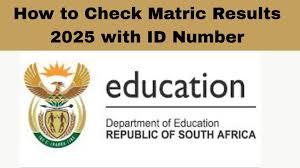Introduction
Geography is a subject that connects learners with the world around them, fostering an understanding of the physical and human landscapes that shape societies. Among its many components, mapwork is a fundamental skill that helps students interpret spatial information, understand geographical relationships, and make informed decisions based on data. For Grades 10 to 12, mastering mapwork is essential not only for examinations but also for developing critical thinking and analytical skills.
To aid students in their studies, the Grade 12 Matric Study Guides Geography Mapwork Self Study Guides have been developed by the Department of Basic Education. These guides provide comprehensive resources that simplify the process of understanding and applying mapwork concepts.
Accessing the Self Study Guides
You can download the Geography Mapwork Self Study Guides through the following link: Download Geography Mapwork Self Study Guides.
Content Overview of the Geography Mapwork Self Study Guides
The Geography Mapwork Self Study Guides cover a wide range of essential topics and skills that students need to master in order to succeed in their Geography studies. Here are the primary areas generally included:
1. Understanding Map Projections
- Types of map projections (e.g., Mercator, Robinson, Conic).
- Advantages and disadvantages of each type.
- How projections affect the representation of geographical features.
2. Reading and Interpreting Maps
- Understanding map symbols, legends, and scales.
- How to extract information from different types of maps (thematic, topographic, political).
- Practical exercises that encourage critical map analysis.
3. Map Skills
- Compass directions and grid references.
- Measuring distance and area on maps.
- Using coordinates to locate places accurately.
4. Fieldwork Techniques
- Conducting geographical fieldwork and surveys.
- Recording and interpreting geographical data.
- Using technology and tools in mapwork (e.g., GIS, GPS).
5. Cartography Basics
- Principles of good map design (clarity, accuracy, visual appeal).
- Understanding the role of maps in communication.
- Exercises in creating basic maps using software tools.
Benefits of Using the Self Study Guides
1. Structured Learning
The self-study guides are organized in a coherent manner, allowing students to progress logically from fundamental concepts to more advanced skills in geography.
2. Self-Paced Study
Students can engage with the material at their own pace, ensuring a thorough understanding of each topic before moving forward. This flexibility is critical for mastering skills like mapwork.
3. Comprehensive Resources
With the guides covering all necessary aspects of the curriculum, students are equipped with all the information needed to prepare for assessments and exams effectively.
4. Practical Activities
The inclusion of exercises and practical mapwork activities allows students to apply theoretical knowledge, fostering a deeper understanding through hands-on experience.
5. Accessibility
The guides are freely available for download, making them accessible to all students regardless of financial circumstances.
Effective Study Strategies Using the Self Study Guides
To get the most out of the Geography Mapwork Self Study Guides, consider implementing the following strategies:
1. Create a Study Plan
Establish a clear study schedule that allocates time for each topic. Break down your study sessions into manageable chunks to avoid reading fatigue.
2. Engage Actively with the Content
When studying, take notes, highlight key concepts, and interact with the material. Active engagement strengthens memory retention and understanding.
3. Practice Map Analysis
Work on map interpretation exercises regularly. This will not only sharpen your skills but also prepare you for the kinds of questions you might face in exams.
4. Utilize Scenario-Based Learning
Consider real-world scenarios where you could apply your mapwork skills. For example, planning a route on a map or analyzing geographical data related to current events.
5. Join or Form Study Groups
Collaborating with classmates can enhance understanding. Discuss challenging topics or practice interpreting maps together.
6. Seek Feedback
After completing practices, ask your teacher for feedback, especially on map-related questions. Understanding what you did right and where you can improve is key to mastering the subject.
Conclusion
The Geography Mapwork Self Study Guides for Grades 10-12 are essential resources for any learner aiming for success in Geography. They provide structure, comprehensive coverage, and practical activities that build critical mapwork skills. By engaging with these materials effectively, students can enhance their understanding of geography and improve their performance in both assessments and the final exam.
Download the self-study guides today and take the first step towards mastering geography mapwork. With dedication and the right resources, academic success is within your reach!





